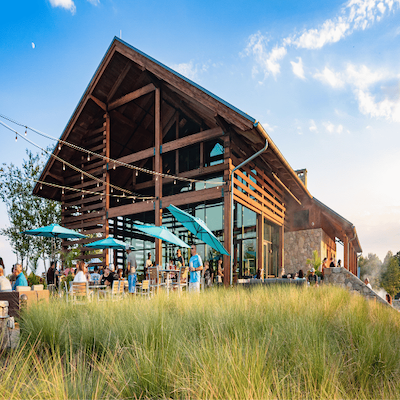Always Elusive, HOA Fees Remain Perennial Hot Button
Category: Active adult communities
May 27, 2020 — Any time active communities come up in a discussion HOAs and their fees are always a big focus. For many retirees, avoiding those fees or finding the lowest ones can become an obsession. So, is there a central depository of the fees at the thousands of active adult and 55+ communities around the country? Alas, the simple answer is no.
But that flat response does not mean that you cannot discover what you need to know before making an important purchase like buying a home. Ongoing HOA fees and assessments are key to your decision. First, let’s talk a little bit about what kind of charges you might expect if you move into a community with a Home Owners Association (HOA) or Community Association (CA).
Fees and Assessments add up to… something
If you live in a community with an HOA you can expect to pay monthly or quarterly fees (dues), plus possible assessments. In addition, some communities have amenity fees. In places like The Villages, there are also charges to pay down Community Development Bonds. As an example, a page on the website for The Villages reports that residents pay an average monthly payment of $1017, which includes an amenity fee of $162 and a Development District payment of $190. The other charges included in the monthly total are for utilities and taxes. This estimate is for a home worth $250,000 with a Homestead Exemption. In contrast, communities with little infrastructure and few amenities the monthly fees might not even be $200. In land lease communities the fees might be higher, because you don’t own the land under your unit.

Assessments can be the biggest wild card. For example, if an unexpected major expense comes up that does not have budgeted reserves for, the residents will be assessed to pay for it. Examples are repairs and reconstruction after a hurricane, elevator replacement, sewers, roofs, roads, etc. Hopefully your new HOA has been putting money into a reserve fund for these, but surprises do happen, particularly when the Board has not been proactive and fees are kept too low.
But you do get things for your money
If you live on your own outside of a development you don’t pay these fees to an association. However, you are on your own for many of the things they usually cover: exterior maintenance, security, septic systems, driveways, the roof, taxes, insurance, and landscaping – to name a few. Then there are the amenities – if you use a lot of amenities like a swimming pool, fitness center, golf, etc. you will probably pay more to create them on your own than you would in an HOA.
No central repository of national HOA fees?
While there is no central place to find out what different residents in HOAs pay in different parts of the country, there are some surveys that give indications. A report on Trulia pegged the average national monthly HOA fee at $331 in 2015, and it is surely higher now. New York had the highest average fees, and parts of the midwest and the south had the lowest. At 32%, Fort Lauderdale, FL had the highest percentage of homes paying HOA fees. In general, the report found, the smaller the homes, the older the community, and the fewer homes in the development – the lower the fees. The fees are normally prorated based on the square footage of the home or lot. This article: “Decoding HOA Fees” has more helpful information.
How can you find out what the fees will be?
For starters, ask your real estate agent, who is required to tell you. Ask for copies of recent statements, including a history of assessments (which can be for tens of thousands of dollars when they happen). You can also ask the Community Association for this information, or the seller. Communities with professional managers will normally be quite forthcoming.
Comparison shopping is work
Unfortunately, most community websites and many HOAs will make you work to comparison shop. Some have the information on their sites … and some don’t. But just knowing the dollar figure isn’t really enough – you are dealing with apples and oranges because of the tremendous variety of what might be included. Most fees cover standard items like exterior insurance and roads, clubhouses, tennis courts, etc. But some communities charge extra for some or all amenities like golfing privileges. How much security is provided – is there a 24 hour guard gate, or nothing? Are fees being put into reserve funds, or are they hoping nothing bad will happen.
Bottom line
HOA fees can be a lightning rod for many people. There is a wide range – some communities offer great value for a reasonable fee, others are more expensive (and possibly are more exclusive). Before you sign on the dotted line, make sure you press your real estate agent and/or the HOA management to get a solid understanding of past, current, and projected fees.
Comments? Are you one of those people very interested in HOA fees? Were they a driving force in your purchase decision? Do you think the fees in your community are reasonable? Please share your thoughts and experiences in the Comments section below.
For further reading:






Comments on "Always Elusive, HOA Fees Remain Perennial Hot Button"
Jennifer says:
I have lived in a co-op in Washington, DC. Our monthly fees include all utilities, staff, grounds maintenance and everything else except for my Internet and cellphone bills. It also includes healthy reserves and an operating budget which is separate.
If I were in a single family home with no HOA, I would probably pay nearly what I pay here because I would also have to save for an emergency. I would also be using most of my free time to do maintenance. I am glad that someone else takes care of the lawn and extensive gardens here--we are on 12 acres. We have retirees who work hard to keep the fees down. They are still expensive but I do try to remind myself of what I am getting in return. Since we are a co-op, we have our own inhouse repairmen, painters, and gardener. We are also self governed although we do employ administrative staff, porters, housekeeping staff and desk receptionists. I could and may move to a destination with none of the above, but then I will get no services either.
John L. Walker says:
I'm looking to relocate from SoCal to the Reno area. I don't even look at homes with HOA fees. Maybe some of them are OK but you have no control over future fee hikes unless you want to spend your time immersed in your neighbor's business by running for election to the board or attending meetings or whatever. I'd rather do my own maintenance and repairs and pay for my own pool and choose my own paint colors. Guess HOAs are great for some but not for me. To each his own.
Darla says:
We have lived in a small community (gated with 60 villas) and have been here about a dozen years with a resident run HOA. It is well taken care of and it does include yard maintenance, winter shoveling and plowing every driveway, trash, and water among many other things like gutter cleaning 2x a yer and window washing. It is an attractive neighborhood and the weekly lawn care workers do a great job so no complaints. In the winter there is snow removal but they do not salt so our street is not harmed. We paid $225 per month for years, but when the new board took over last summer our HOA fees went to $350 per month. They were much more concerned about the low reserve fund and after reviewing the budget we agreed so have no problem with the large but necessary increase. Recently two homes in our community went up for sale and both sold within a day, so it must not be out of line with what others are paying in our location. I think being a board member is a thankless job, and can't be easy. I also think it is the homebuyers responsibility to find out from the Board or Management about what the last assessment was and what is the amount of the next planned assessment and what is it needed for. The real estate agent is not going to offer this kind of information and may be hoping you don't ask.
Jemmie says:
I was on a HOA board for a few years in a very small community with no clubhouse. We really didn't have many issues but things do happen-pool leak, sprinkler system repair, dock replacement, etc. and so there was an assessment every year along with a rise in HOA fees. But we had very little turn over in real estate. Homeowners were there for years and thankfully everyone got along very well. Our board meetings were open and residents were notified 10 days in advanced of the upcoming meeting and invited to speak at the beginning of them. We also published the minutes soon after and they were sent to every owner. During my 3-year term on the board only 1 resident attended our meetings. I think that showed people were happy with the way things were run and knew we had a large reserve fund for what may happen down the road, which is nice security to have. When I moved in 2012 the HOA fees were $350, and because I still have friends living there I know the fees are now over $600, which really is not bad for Connecticut when it also includes a boat dock for every home.
Oso says:
If you are considering Arizona. There is some HOA comparisons for several of the popular communities in Arizona to compare value and what you get for the money.
https://groups.io/g/Saddlebrooke-community-info